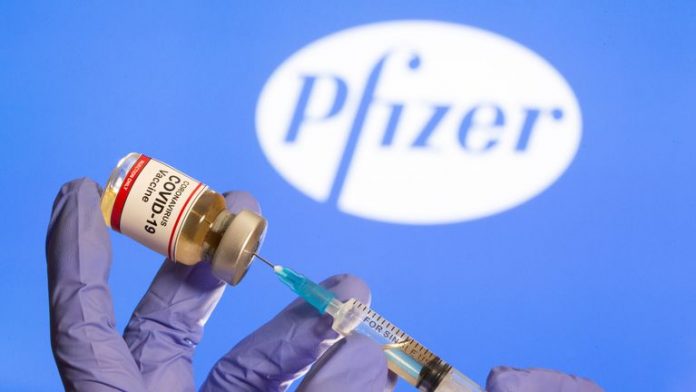Update on isolation and quarantine policy
As of Monday 3rd January 2022, the isolation/quarantine policy is changing to reflect the latest scientific evidence on COVID-19.
COVID-19 positive persons and persons living in the same household
Those persons who are positive with COVID-19 and contacts living in the same household would be obliged to self-isolate for a full 10 days and not 14 days as long as those:
- Aged 18 years or over are in possession of a valid vaccine certificate with a booster dose provided the date of the booster dose is 14 days or more prior to the release date.
- Aged 5-17 years are in possession of a valid vaccine certificate with full primary schedule of vaccination with 2 doses (provided the date of the second dose is 14 days or more prior to the release date.
Persons living in the same household as a COVID positive person are only eligible for a reduced quarantine period of 10 days if both themselves and the COVID positive person is fully vaccinated as described above. Moreover, positive persons and their household contacts can be released after 10 days only if they did not have symptoms for at least 3 days before the date of termination of isolation. If symptoms persist, then he/she should stay in self-isolation until 24 hours after symptoms resolve. Household contacts of a positive case cannot be released before the positive case is released.
This policy change also applies to those positive persons and their household contacts who were already in self-isolation before the 3rd January 2022 and meet the above criteria.
The isolation/quarantine mandate to the positive cases and their contacts will include details on the period of isolation/quarantine that is required and hence no release letter would be issued by Public Health for COVID-19 positive persons and their household contacts to be released from self-isolation. Public Health will continue to enforce these applicable rules and regulations and if anyone is found to have broken these regulations, applicable fines will be issued as per current legislation.
Non-household close primary contacts
Close contacts (also known as primary contacts) are at risk of developing COVID-19 due to significant exposure to a positive case of COVID-19 during their infectious period (e.g. due to significant time spent face-to-face at short distances, sharing an enclosed space for extended periods or having physical contact).
Primary contacts who do not live with the positive case and who have a valid vaccination certificate (2 doses or with 2 doses and booster), as has been the policy since August 2021, continue to be eligible for early release from quarantine of 7 days provided they undergo testing with a Rapid test or NAAT test (Nucleic acid amplification test e.g. PCR) which can be done at any registered rapid testing centre or licenced Lab on Day 7 and this results in a ‘non-reactive’ (negative) COVID-19 test. Even after the test is performed, vaccinated primary contacts and other persons living in the same residence are to remain in quarantine until they receive the negative result. The quarantine period then ends on the 7th day at midnight.
For primary/close contacts who do not live in the same household as the positive case
- Aged 18 years or over are in possession of a valid vaccine certificate with a booster dose with date of booster 14 days or more prior to the release date.
- Aged 5-17 years are in possession of a valid vaccine certificate with full primary schedule with two doses and with date of second dose 14 days or more prior to the release date.
If they opt not to do the 7-day test, they can be released from quarantine on the 10th day at midnight post-exposure provided they have a valid vaccine certificate as above.
- Non-vaccinated persons need to remain in quarantine for 14 days.
This policy change also applies to those primary contacts who were already in self-isolation before the 3rd January 2022. Public Health will continue to enforce these applicable rules and regulations and if anyone is found to have broken these regulations, applicable fines will be issued as per current legislation.
Household members of close contacts (secondary contacts)
As from Monday 3rd January 2022, household members of primary/close contacts (secondary contacts) are eligible for exemption from quarantine if they are:
- Aged 18 years or over and in possession of a valid vaccine certificate with a booster with date of booster 14 days or more prior to the release date.
OR
- Aged 5-17 years and in possession of a valid vaccine certificate with two doses and with date of second dose 14 days or more prior to the release date.
AND
- Are not symptomatic or have not become a primary contact of a confirmed case or have not tested positive.
Those who do not meet the above criteria need to observe quarantine together with the primary contact until the primary contact is released.
Important note for unvaccinated persons
All the above policy changes do not apply to unvaccinated persons, whether they are positive cases, primary or secondary contacts. For unvaccinated persons, including children under 5 years of age, the applicable self-isolation and quarantine periods remain at 14 days.
Quarantine for travel-related purposes
Quarantine related to travel remains for 14 days as of arrival to Malta for persons aged 12 and over and who are not in possession of a valid vaccination certificate and for those who are authorised to travel to Malta from a dark red zone. In all cases, anyone remaining in the same household with a return traveller/s who is required to quarantine, will be in quarantine for the same period even if they are vaccinated.Attachments area










